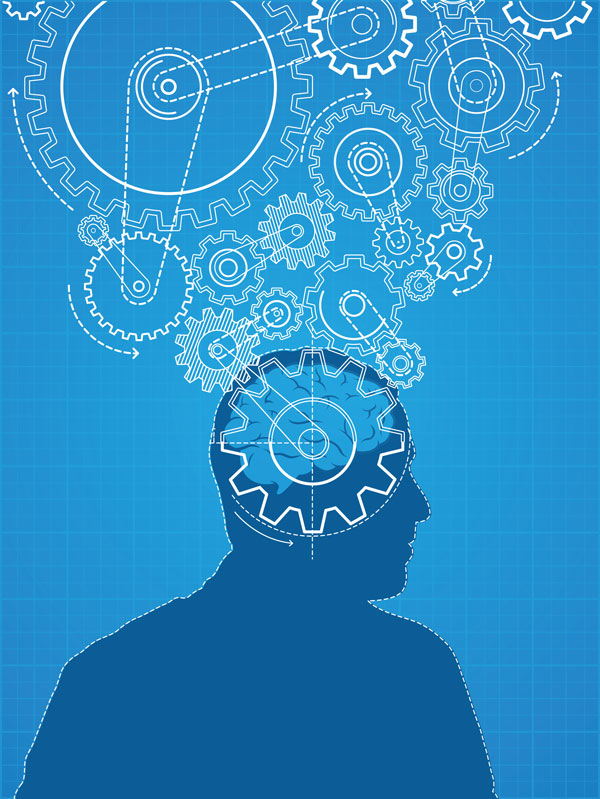The quality of the psychological assessment you receive can dramatically vary. From my 15 years of practice as a Tucson based clinical psychologist, I have conducted hundreds of child and adult psychological evaluations. Here are some useful tips if you – or someone you know – is seeking an assessment for any of the following issues:
ADHD
Learning disability
Social awkwardness or Autism
Anxiety
Career guidance / Giftedness
Sports Psychology & Talent Enhancement
PTSD or trauma
ADHD
As I have discussed in a blog I wrote, this is one of the most commonly misdiagnosed conditions. Also, people often rush to medicate themselves or their child instead of recognizing there is a variety of evidence-based approaches not involving medication or which can work alongside medication. Many non-medication techniques have been developed to treat ADHD symptoms, so do not assume medication is the only option. Make sure…
— There is a thorough assessment which begins by looking broadly at all factors which could be causing the focusing problem, including genetic family history of psychological issues, current stressors, and when the focusing or hyperactivity problem is present versus when it is not. Sometimes it is the environmental factors, not a clinical problem, causing the issues. Make sure to remember…
— There is specific assessment to identify psychological factors causing someone to “look ADHD”, even though the root of the problem is based in problems such as with insomnia, anxiety, undetected trauma or low motivation due to disinterest. For example, many children who are gifted are labeled as ADHD when they are actually just plain bored!!
— One of the most common reasons a person acts like they have ADHD is they have been traumatized but no one has ever become aware of that. For example, many people with PTSD have significant focusing problems. In-depth psychological evaluation is critical.
— You need interviews of not just the person suspected of ADHD, but several people around that person. If it is a student, information from teachers or tutors is vital. If it is an adult, information from a spouse of best friend is vital! Too many medical or mental health professionals operate in a silo without reaching out to gather a broader network of data before labeling someone with this diagnosis. Learn more by reading my blog discussing The top reasons you or your child might be misdiagnosed with ADHD.
Learning disability
Learning disabilities are most often undetected and yet they can impair people from reaching their true potential. There is a large diversity of learning disabilities which go far beyond dyslexia, and include problems with how quickly you can process information, ability to visually track information, and basic problems with handwriting or with verbal expression. Make sure…
— To use an evaluator who will integrate information from a diverse group of sources including academic transcripts, teachers, tutors, and from scientifically validated measurement instruments
— To use an evaluator who will start out by casting a broad net to capture all factors that are contributing to the learning problem. Common factors which contribute to learning problems include family history of learning problems, neurological or physiological impairments (e.g, with fine motor skills), test anxiety, subtle cognitive impairments and current level of academic or workplace motivation.
— That the assessment includes evaluating to what degree a person simply feeling truly disinterested in the tasks they are faced with, indicating the need for a better fit to be made between the person and their current educational or work pathway. Click here to learn about a in-depth career guidance process I have developed.
Social awkwardness/Autism
I have evaluated Autism in over 200 people in Tucson AZ. Too often I have noticed medical or mental health professionals rush to diagnose autism, when a person does not meet full criteria for this condition. Psychological science is increasingly identifying a broad spectrum of neuro-atypical conditions which may share symptoms with autism but are noticeably different. Make sure…
— To ask a potential evaluator what procedures and/or techniques they use in order to identify whether a person has Autism versus having a grouping of neuro-atypical characteristics which are distinguishable from autism. There are many groupings which clinicians are seeing but have no “label” to make them seem real. But labels do not make something real. Find an evaluator who is not ultimately focused on diagnosis, but rather, functionally precise assessment.
— The evaluator includes the naturalistic observations of people who have worked with the person being evaluated. This includes teachers, tutors, counselors, friends and or parents.
— The evaluator conducts an adequate assessment of the individual’s personality characteristics, to determine to what degree factors including excessive shyness, or extreme introversion, may be causing “Autism like” qualities.
— The evaluator takes into account levels of intelligence and any other special talent the individual may have. I have noticed that it is common for extremely intelligent people to present as if they have Autism because they are often lost in their own thoughts or creativity, and can present as if they are socially disconnected. Meanwhile, in reality, that person is simply absorbed in their own internal world of creativity.
Anxiety
Anxiety often is misdiagnosed as ADHD and/or as anger management problems, and because ADHD and/or anger management problems are often starker problems, the underlying anxiety is often ignored or missed. If you are a pediatrician, or a non-behavioral health professional, you often do not have time to conduct enough assessment to determine if the focusing problem is based in anxiety. Make sure…
— The evaluator conducts a complete assessment of personality in order to understand how your inborn temperament is interacting with current environmental variables. It is not uncommon for difficult life situations to create clinically significant anxiety. If this is true, the best diagnosis is often an adjustment problem, not an anxiety diagnosis. This is very important because diagnoses are submitted to insurance companies, and an anxiety diagnosis can affect a person in negative ways.
— You obtain an evaluation that assesses for life experiences you may have had which cause you to have consistent anxiety. Trauma, phobias, abuse, or experiences involving major conflict can lead to clinically significant anxiety. But for effective treatment to occur, the specific subtype of anxiety needs to be identified. There are many different anxiety diagnoses, and too often people are labeled with a Generalized Anxiety Disorder (GAD), when actually they have a specific subtype of anxiety which is missed.
— The evaluator assesses for Obsessive Compulsiveness, which is one of easiest conditions for evaluators to miss because it can present itself in ways which are far different than the stereotypical over washing of hands. Obsessive compulsiveness can include superstitious types of behaviors that can easily remain camouflaged because each human individual often has their own collection of superstitions.
Career guidance
One of my greatest pet peeves is superficial career guidance. This is why I have developed an in-depth career guidance process. More than half of people report feeling unfulfilled with their work or education, and this has recently led to the Great Resignation. I wrote a blog about this which went viral. Make sure…
— Before you go to college you understand that higher education is fundamentally changing, to the degree where employers are now starting to favor credentials over degrees. Credentials are the new “lego” building blocks that future focused people are using to avoid unnecessary and often enslaving tuition costs.
— You understand that finding work that will be fulfilling across 90,000 hours of your life, which is the typical amount of time you will put into a career, demands you put yourself through a psychologically intensive process rather than trusting superficial personality labels or shallow self reflection exercises which can allow you to remain locked in your own echo chamber. I have written several blogs about career guidance, and my collection of blogs is viewable.
Giftedness
It is common for schools to assess whether a child is gifted or not using group testing. I discuss this in my viral blog regarding how and why we assess for giftedness. The problem is many children do not do as well in a group format as they would working one-on-one with an evaluator. Secondly, because giftedness manifests in diverse ways, it can easily be missed if a narrow type of measure is used. Make sure…
— Even if your child does not qualify for services based on the school’s assessment, you cannot assume your child does not have giftedness. Find a qualified evaluator who will make sure to assess the many different ways that giftedness manifests, including verbally and visual-spatially.
— Make sure the evaluator to select uses a measure that will not only assess for verbal giftedness but also giftedness with spatial or three-dimensional thinking. Traditionally there is been an over emphasis on giftedness based on verbally involved tasks that measure things like vocabulary, whereas studies have shown three-dimensional thinking is a key facet of giftedness but is often overlooked. For example, the field of engineering is full of people who may not have gifted verbal skills but have highly advanced skills in terms of visualizing phenomena using three-dimensional conceptualizations.
— Use an evaluator who will not only look for ‘giftedness”, but also for advanced skills that might turn into gifted skills if developed. Read more about this…
Sports Psychology/Talent Enhancement
As I discussed in a blog about the future of high performance sports, Increasingly athletes and/or highly talented people are recruiting psychologists to help them accelerate their talents so they have the best chance of becoming elite in their field. However, sustainable performance enhancement comes after we identify the talents we can leverage as well as the factors currently holding the person back. This requires using a professional who can comprehensively but concisely evaluate your mental functioning. Make sure…
— To use a professional who has a proven track record of competently conducting thorough personality assessment, which goes far beyond personality tests. Personality tests often provide only a superficial understanding, whereas what you really need is to understand your network of thoughts and feelings.
— To use an evaluator who will integrate the perspectives of people who know the individual being evaluated quite well. For example, when I conduct talent enhancement with individuals, I often obtain information from parents, coaches, trainers, and even those who commonly work out with the athlete. Only then can we obtain a truly 360° perspective. If we do not do this we are only obtaining a small part of the whole story.
PTSD/Trauma
This is one of the most commonly overlooked conditions. One reason for this is people often prefer to not disclose that they have been through something traumatic. For example, look at how those who have been sexually abused often prefer to keep it a secret for their whole life. I wrote a blog about the importance of discussing your trauma with her professional, because whether you recognize it or not, it takes a significant amount of energy to continue to suppress the trauma you have been through. In the end human personality is a personality energy system, and memories thoughts and feelings from trauma often create a permanent energy leak in your personality. Make sure…
— To find a competent professional to work through your trauma with. Your trauma is affecting you much more than you realize.
— To not listen to the mythology that if you talk about your trauma it will get worse. While it may get worse in the short term, the long-term benefit of disclosing what is happened to you will dramatically outweigh any shorter-term risks.
— To use a professional who has very strong and advanced psychological skills. PTSD is one of the most difficult conditions to treat, because it involves complex mixtures of anger, anxiety, focusing problems, intense memories and/or dissociation. Very often I have seen people who have PTSD inappropriately treated by those with lower levels of mental health training, causing a person to severely deteriorate and become worse.
— If you know someone who was been through trauma, that you understand that it is critically important for a person to get treatment as soon after the trauma as possible. Untreated trauma tends to cause symptoms that become exacerbated over time.



